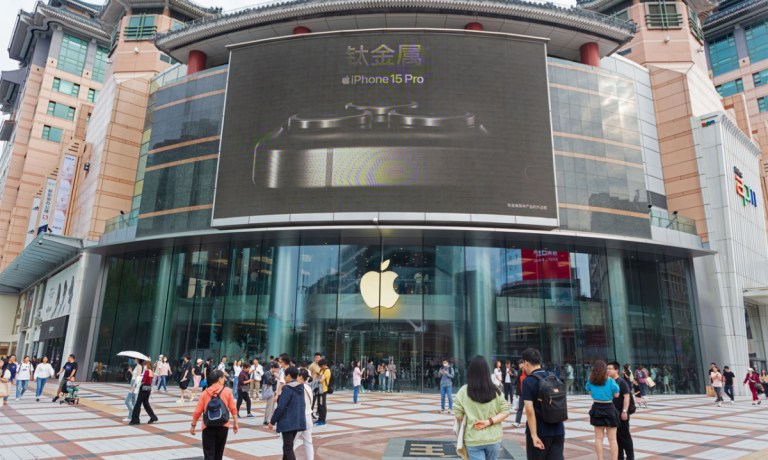iPhone Market Share Sinks in China and the US

Apple’s aggressive discounting campaign in China apparently did not prevent it from losing market share.
The tech giant ended May with 11% of the Chinese smartphone market, even as iPhone sales climbed 0.9% year over year, Seeking Alpha reported Monday (July 1), citing findings from investment firm UBS.
“We estimate iPhone sell-through in China was largely flat YoY during May-24 in a market that grew 11% YoY,” UBS analyst David Vogt wrote.
“While Apple bulls may note the data is backwards looking and is not likely indicative of Apple’s AI smartphone opportunity next year, we note that iPhone share loss to Huawei and other Chinese OEMs acts as a material governor on iPhone unit growth.”
Vogt also noted that iPhone sales in the U.S. were also down 16% while the overall smartphone market was down 10%, a sign that Apple had lost share in America. The company was down 7% in India, where the market fell 7%, but up 19.5% in Europe, though that’s below the overall 21% rise in that market.
These findings throw a bit of cold water on recent data from the China Academy of Information and Communications Technology showing a rebound in iPhone sales in China. Shipments of foreign-branded phones in the country came to 5.028 million in May, up from 3.603 million a year earlier. And because Apple is the dominant foreign brand in China, the rise is likely down to gains made by the company.
iPhone sales had fallen earlier in the year due to pressure from other, China-based smartphone makers, including the aforementioned Huawei, before jumping a respective 52% and 40% in April and May, thanks in part to discounts offered by Apple on its official Tmall site in China.
Also last week, the research firm Counterpoint Technology Market Research said that Apple’s sales in China benefited from stronger promotions and an extra week of sale prices compared to last, due to a longer-than-usual 618 shopping festival in the country. In 2023, that festival ran for less than three weeks, while this year, it lasted an entire month.
“The brand offered the biggest-ever discounts, reaching up to RMB 2,350 (about $326) during the period to entice consumers, especially given the strong competition from Huawei in the premium segment,” Counterpoint said in a news release.